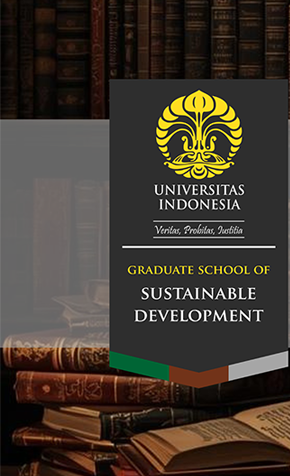Abstract
The role of government and society in social media is urgently needed as a counter-narratives of propaganda from terrorist group to against the spread of narratives of hoax, intolerance, extremism and radicalism. However, there is still a bias in building narratives against terrorist groups. It is necessary to carry out deconstruction efforts to prevent terrorism through the media. This study uses a virtual ethnographic approach to see how far the construction of counter-narratives, counter-propaganda is made by the government, so we can see things that need to be deconstructed. The results of the study show that in some BNPT social media, the counter-narrative content towards radical groups is more dominant, so it is giving rise to stigma, secondary deviation, and the difficulty of understanding the diction that appears in a counter-narrative content by the society. So that later it can be classified what can be consumed by the public and not. The public wants practical and instant content, short videos, and information that can be understood by all people.
Bahasa Abstract
Melawan penyebaran narasi hoaks, intoleran, ekstrimisme, dan radikalisme, peran pemerintah dan masyarakat di media sosial sangat dibutuhkan sebagai kontra dari narasi dan propaganda kelompok teroris. Akan tetapi, masih terdapat bias dalam membangun narasi guna melawan kelompok teroris. Perlu dilakukannya upaya dekonstruksi pencegahan terorisme melalui media. Penelitian ini menggunakan pendekatan etnografi virtual ini adalah untuk melihat sejauh mana konstruksi kontra narasi, kontra propaganda yang dibuat oleh pemerintah, sehingga dapat melihat hal-hal yang perlu dilakukannya dekonstruksi. Hasil penelitian dijelakan bahwa dalam beberapa media sosial BNPT yang berisikan konten kontra narasi kepada kelompok radikal lebih dominan, sehingga memunculkan stigma, secondary deviance, dan juga pemahaman yang sulit oleh masyarakat akan diksi yang dimunculkan dalam sebuah kontra narasi. Sehingga nantinya dapat diklasifikasikan apa yang dapat dikonsumsi publik apa yang tidak dapat diberikan kepada publik. Publik menginginkan konten yang praktis, instan, video singkat, tidak bertele-tele, dan info yang dapat dipahami seluruh kalangan.
References
Arrobi, M. Z. (2018). The Making of Islamist-inspired Terrorism and It’s Counter-terrorism in Indonesia. Politik Indonesia: Indonesian Political Science Review, 3(2), 217-238.
Al-Fayyadl, Muhammad. 2005. Derrida. Yogyakarta: LKiS
Barker, Chris. (2004). Cultural Studies: Teori & Praktik. Yogyakarta: Kreasi Wacana.
Bertens, K. (1996). Filsafat Barat Abad XX Jilid II, Jakarta: PT. Gramedia Pustaka Utama.
Charnet, C., & Veyrier, C. A. (2008, May). Virtual ethnography methodology for researching networked learning. In Proceedings of the 6th International Conference on Networked Learning (pp. 32-37).
Hoskins, A., Awan, A., & O'Loughlin, B. (2011). Radicalisation and media: Connectivity and terrorism in the new media ecology. Routledge.
McQuail, D. (2010). The future of communication studies: A contribution to the debate. Media and communication studies interventions and intersections, 27.
Nasution, Solihuddin., Ardi Putra Prasetya., Azmul Fuady. (2021). Deradikalisasi di Masyarakat. Penerbit Bildung: Bantul.
Ozeren, Suleyman., Hakan Hekim. 2018. An Analysis of ISIS Propaganda and Recruitment Activities Targeting the Turkish-Speaking Population. International Annals of Criminology, 57, 105-121.
Umar, A. R. M. (2010). Melacak akar radikalisme Islam di Indonesia. Jurnal Ilmu Sosial dan Ilmu Politik, 14(2), 169-186.
Vilmer, J.-B. Jeangène., A. Escorcia, M. Guillaume, J. Herrera. 2018. Information Manipulation: A Challenge for Our Democracies, report by the Policy Planning Staff (CAPS) of the Ministry for Europe and Foreign Affairs and the Institute for Strategic Research (IRSEM) of the Ministry for the Armed Forces, Paris.
Royle, N. (2003). Jacques Derrida. Routledge.
Sitorus, G. H., Pasaribu, N., & Sukabdi, Z. (2021). KESENJANGAN SOSIAL SEBAGAI AKAR PROPAGANDA GERAKAN SEPARATIS-TERORISME DI PAPUA. Jurnal Pertahanan & Bela Negara, 11(3), 138-150.
Zulfikar, M., & Aminah, A. (2020). Peran Badan Nasional Penanggulangan Terorisme dalam Pemberantasan Terorisme di Indonesia. Jurnal Pembangunan Hukum Indonesia, 2(1), 129-144.
Recommended Citation
Febrityas, Febrityas and Syauqillah, Muhammad
(2022)
"DECONSTRUCTION OF CONTENT AS PREVENTION OF TERRORISM: SOCIAL MEDIA STUDY OF THE NATIONAL AGENCY FOR COUNTERTERRORISM (BNPT),"
Journal of Terrorism Studies: Vol. 4:
No.
2, Article 6.
DOI: 10.7454/jts.v4i2.1054
Available at:
https://scholarhub.ui.ac.id/jts/vol4/iss2/6

